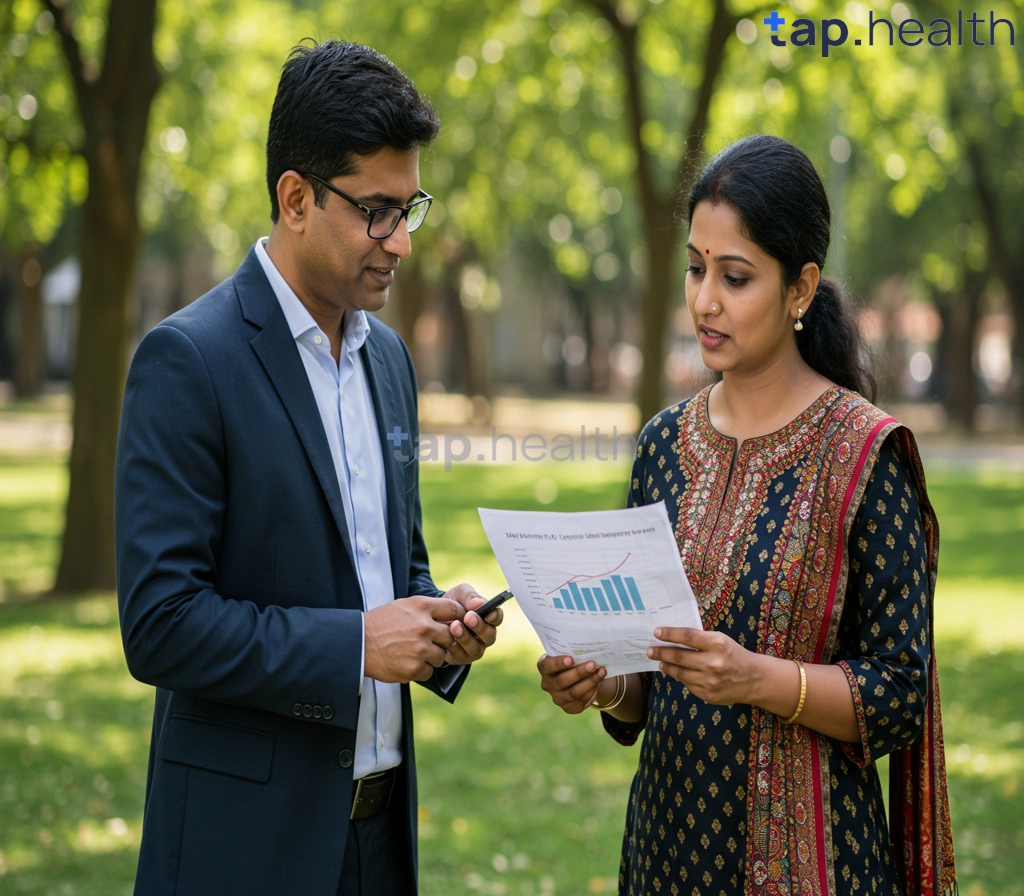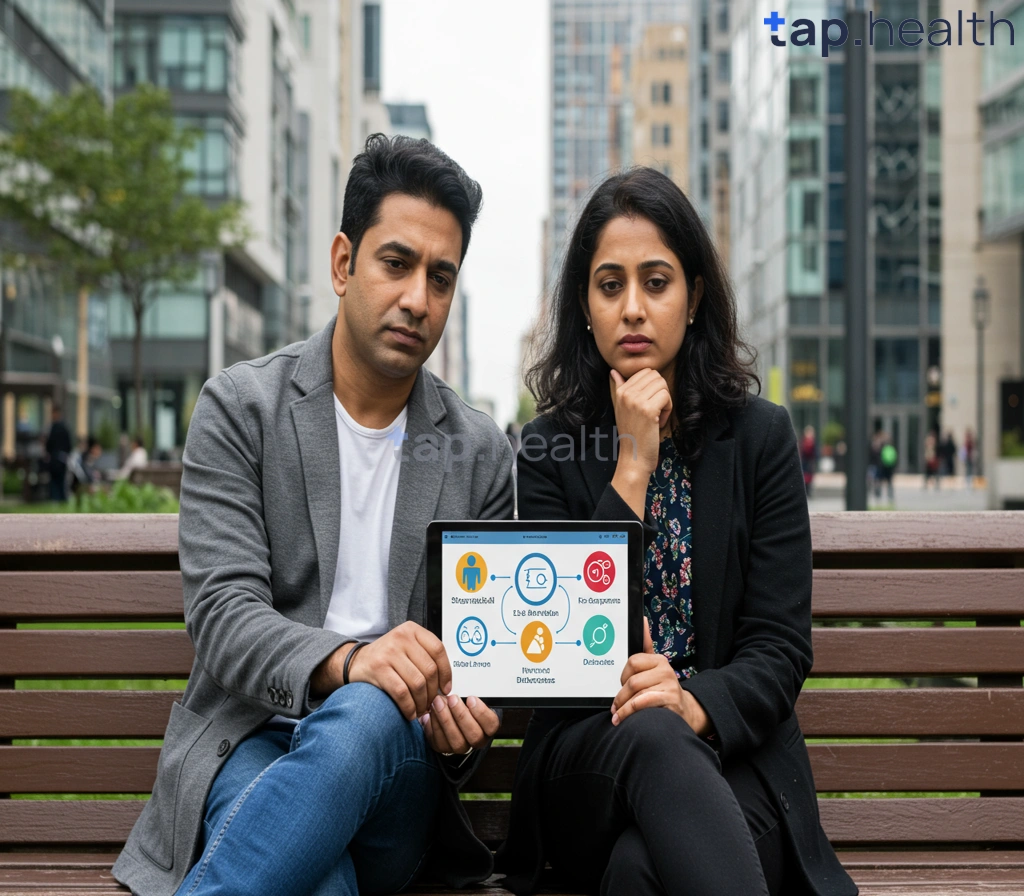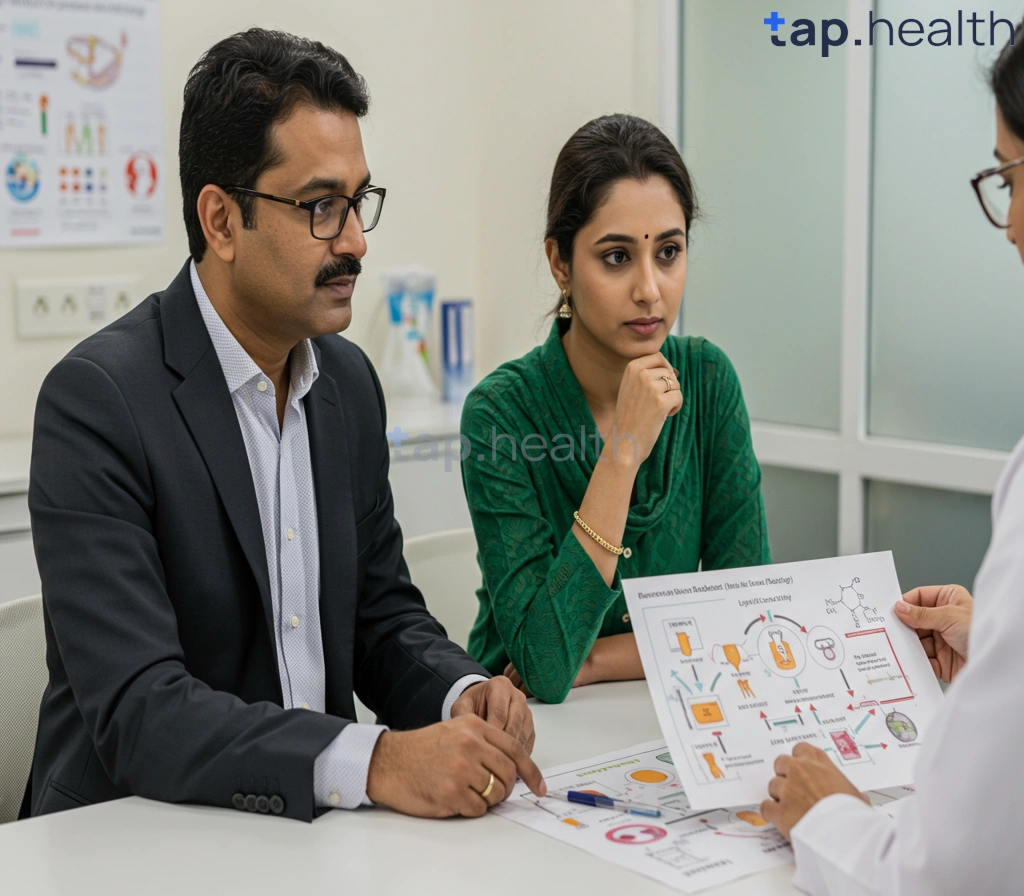Table of Contents
- High Vitamin C & Diabetes: Understanding the Risks
- Vitamin C, Diabetes, and Blood Sugar: A Comprehensive Guide
- Is High Vitamin C Intake Safe for People with Diabetes?
- Managing Diabetes: The Role of Vitamin C and Antioxidant Intake
- Balancing Vitamin C and Diabetes: A Nutritional Strategy
- Frequently Asked Questions
- References
We all know Vitamin C is fantastic for boosting our immune system, but did you know that a high Vitamin C intake might have unexpected implications for those managing diabetes? This is a crucial topic often overlooked, and understanding the relationship between High Vitamin C Intake: Diabetes Risks and Considerations is key to maintaining optimal health. This blog post will explore the potential benefits and drawbacks of high Vitamin C consumption for individuals with diabetes, helping you navigate this complex nutritional landscape. Let’s delve into the science and discover how to best incorporate Vitamin C into your diabetic diet safely and effectively.
High Vitamin C & Diabetes: Understanding the Risks
High Vitamin C intake, while generally beneficial, requires careful consideration for individuals with diabetes, particularly women in Indian and tropical countries. While Vitamin C is an antioxidant and crucial for immune function, its impact on blood sugar control and cardiovascular health needs nuanced understanding. Excessive Vitamin C supplementation can interact with certain diabetes medications, potentially affecting blood glucose levels. This is particularly important because women with diabetes in this region already face a heightened risk of complications. Research indicates women with diabetes have a 40% higher risk of heart disease compared to men with diabetes. This increased vulnerability underscores the need for a balanced approach to dietary intake, including Vitamin C.
Navigating Vitamin C Intake for Diabetes Management
Many tropical fruits and vegetables readily available in India and other tropical regions are naturally rich in Vitamin C. Therefore, obtaining sufficient amounts through a balanced diet is generally achievable. Prioritizing whole foods like amla (Indian gooseberry), guava, and citrus fruits is a healthier approach than relying on high-dose supplements. Always consult a doctor or registered dietitian before starting any new supplements, especially if you have diabetes or other health conditions. They can help you determine a safe and appropriate intake of Vitamin C based on your individual needs and medical history.
Practical Tips for Healthy Vitamin C Consumption
Incorporate a variety of Vitamin C-rich fruits and vegetables into your daily meals. Monitor your blood sugar levels closely if you introduce significant changes in your diet. Remember, a holistic approach to diabetes management considers all dietary components, physical activity, and medication adherence. Prioritizing whole foods over supplements is crucial for long-term health and well-being. Seek advice from healthcare professionals for personalized guidance tailored to your specific circumstances and location. Understanding the different types of diabetes is also crucial for effective management. While this article focuses on Vitamin C, it’s important to note that other conditions, such as Is Type 3c Diabetes Dangerous?, can also impact blood sugar control. For instance, Can Hepatitis C Cause Diabetes? is a question that needs careful consideration.
Vitamin C, Diabetes, and Blood Sugar: A Comprehensive Guide
Managing blood sugar levels is crucial for individuals with diabetes, especially in regions like India and other tropical countries where dietary habits and lifestyle factors can significantly impact this condition. While Vitamin C is essential for overall health and immune function, its role in diabetes management requires careful consideration. High doses of Vitamin C aren’t directly linked to lowering blood sugar, unlike insulin or other diabetes medications. However, its indirect impact on blood sugar control is worth exploring.
Vitamin C and its Potential Effects on Diabetes
Some studies suggest that adequate Vitamin C intake may improve insulin sensitivity, potentially aiding in better blood sugar regulation. This is crucial because efficient insulin utilization prevents high blood glucose levels. However, it’s vital to remember that Vitamin C is not a replacement for prescribed diabetes medication or a balanced diet. Maintaining a controlled carbohydrate intake remains paramount; generally, 45–60 grams of carbs per meal is recommended for many with diabetes, although individual needs vary. This needs to be adjusted based on your personal needs and your doctor’s advice. Managing other health conditions, such as high cholesterol, is also important. For information on that, see our guide on How to Manage Cholesterol Levels with Diabetes?
Dietary Considerations for Diabetics in Tropical Climates
In tropical and Indian contexts, readily available sources of Vitamin C like citrus fruits, guava, and amla (Indian gooseberry) can be incorporated into a balanced diabetic diet. However, it’s crucial to consume these fruits mindfully, considering their carbohydrate content and how it impacts your overall daily carbohydrate allowance. Focus on a balanced diet rich in fiber and low in processed foods. Remember, consulting a doctor or registered dietitian is essential to create a personalized meal plan that balances Vitamin C intake with your diabetes management strategy. It’s also important to be aware of the potential impact of dietary supplements; for more information, see our article on Safe and Effective Dietary Supplements for Diabetes Care.
Conclusion and Recommendations
While Vitamin C offers numerous health benefits, it shouldn’t be viewed as a cure or direct treatment for diabetes. For individuals with diabetes in India and tropical regions, focusing on a balanced diet, regular exercise, and consistent medication as prescribed by a healthcare professional remains the cornerstone of effective diabetes management. Consult your doctor or a registered dietitian to determine the appropriate Vitamin C intake for your specific needs and health status. They can help you incorporate Vitamin C-rich foods into your diet safely and effectively while managing your blood sugar levels.
Is High Vitamin C Intake Safe for People with Diabetes?
High blood sugar is a significant concern for individuals with diabetes, with studies showing HbA1c levels above 9% in over 30% of patients. This highlights the importance of managing blood glucose effectively. While Vitamin C is crucial for overall health and immunity, its impact on blood sugar levels in diabetics requires careful consideration, particularly in tropical and Indian contexts where dietary habits and access to healthcare vary significantly.
Vitamin C and Blood Sugar: A Delicate Balance
Vitamin C, a potent antioxidant, doesn’t directly raise blood sugar like some carbohydrates. However, its effect on blood glucose management can be indirect. For instance, high doses of Vitamin C supplements can interfere with certain medications used to manage diabetes. Furthermore, the high sugar content in some commercially available Vitamin C products, especially those common in Indian and tropical markets, can counteract the benefits. Therefore, relying solely on Vitamin C-rich foods is generally recommended. This is similar to the considerations around other sweet drinks, such as those discussed in Is Tender Coconut Water Good for Diabetes? Expert Insights.
Practical Considerations for People with Diabetes in India and Tropical Regions
In regions like India, where fruits rich in Vitamin C, such as amla (Indian gooseberry) and citrus fruits, are readily available, incorporating these into a balanced diet is beneficial. However, moderation is key. Overconsumption of even natural sources of Vitamin C can lead to gastrointestinal issues and potentially impact medication effectiveness. Consulting a doctor or registered dietitian is crucial before significantly altering your Vitamin C intake, especially if you have pre-existing health conditions. They can help create a personalized plan considering your specific needs and local dietary patterns. Understanding the impact of different beverages is crucial, and for more information on another popular drink, see our article: Can a Diabetic Patient Drink Coconut Water: Expert Advice.
Making Informed Choices
Prioritizing whole foods rich in Vitamin C, rather than relying on supplements, is generally recommended for people with diabetes in India and tropical countries. Always consult a healthcare professional to determine the appropriate Vitamin C intake based on your individual health status and medication regimen. Remember that a balanced diet and regular medical checkups are essential for effective diabetes management.
Managing Diabetes: The Role of Vitamin C and Antioxidant Intake
Vitamin C and Diabetes Management in Tropical Climates
High levels of vitamin C are crucial for overall health, but their role in managing diabetes, especially within the context of Indian and tropical countries, requires careful consideration. A significant portion of the global diabetic population, 61% of whom are aged between 20-64 years, according to the International Diabetes Federation, lives in these regions, often facing additional challenges like heat stress and varying dietary habits. While vitamin C is a potent antioxidant that can help protect against oxidative stress—a key factor in diabetes complications—excessive intake might not always be beneficial.
Balancing Vitamin C Intake for Effective Diabetes Management
The optimal level of vitamin C intake for individuals with diabetes varies depending on several factors including age, overall health, and existing medication. In tropical climates, where access to fresh produce rich in Vitamin C, like guava, amla (Indian gooseberry), and citrus fruits, is often high, it’s vital to find a balance. Over-reliance on supplements should be avoided, especially for the large population of diabetics aged 20-64 years and 65+ years. This is especially important as you age, and understanding the challenges and solutions of managing diabetes as you age is crucial. Instead, a focus on a balanced diet incorporating various fruits and vegetables rich in vitamins and antioxidants is recommended. Maintaining a strong immune system is also vital, and you can learn more about boosting immunity while managing diabetes.
Practical Tips for Indians and People in Tropical Countries
Prioritize a diet rich in naturally occurring Vitamin C from fruits and vegetables. Consult a doctor or registered dietitian to determine the appropriate intake based on your individual needs and health status. They can help you create a personalized diabetes management plan that considers your dietary habits and regional food availability. Remember, a balanced approach is key to managing diabetes effectively.
Balancing Vitamin C and Diabetes: A Nutritional Strategy
Managing diabetes effectively often hinges on lifestyle choices, and up to 80% of Type 2 diabetes cases can be delayed or prevented through these changes. Lifestyle modifications, including diet, play a crucial role. This includes understanding the role of vitamins like Vitamin C in a diabetic diet. While Vitamin C is essential for overall health, its impact on blood sugar levels needs careful consideration, particularly in the context of prevalent dietary habits in Indian and tropical countries.
Vitamin C & Blood Sugar Control
High Vitamin C intake from sources like citrus fruits, amla (Indian gooseberry), and guava, common in many Indian and tropical diets, can indirectly influence blood sugar management. This is primarily because Vitamin C acts as an antioxidant, reducing oxidative stress associated with diabetes. However, it doesn’t directly lower blood sugar. Overconsumption of Vitamin C-rich juices, especially those with added sugars, can counteract its benefits and negatively impact blood glucose levels.
Practical Dietary Tips for Indians and Tropical Regions
Prioritize whole fruits over juices to minimize sugar intake while maximizing Vitamin C benefits. Incorporate amla, a rich source of Vitamin C, into your diet through chutneys or supplements, always consulting your physician. Balance Vitamin C-rich foods with other essential nutrients to achieve a holistic approach to diabetes management. Remember, consistency in dietary habits is key, not just focusing on a single nutrient. For more detailed dietary guidance, check out our Diet Chart for Diabetic Patients to Control Diabetes.
Consulting a Healthcare Professional
The ideal Vitamin C intake varies depending on individual health conditions and metabolic needs. Always consult with your doctor or a registered dietitian before making significant dietary changes, especially if you have diabetes. They can help create a personalized nutritional plan that incorporates Vitamin C appropriately, considering your specific health status and regional dietary patterns. Regular monitoring of blood glucose levels remains crucial, regardless of dietary adjustments. For additional tips on effective diabetes management, you might find our article on 10 Proven Tips for Effective Diabetes Management helpful.
Frequently Asked Questions on High Vitamin C Intake
Q1. Is high Vitamin C intake safe for people with diabetes?
High Vitamin C intake can be beneficial but requires caution for people with diabetes, especially women in India and tropical regions. Excessive supplementation may interact with diabetes medications, affecting blood sugar levels. It’s best to obtain Vitamin C from a balanced diet.
Q2. What are the benefits of Vitamin C for people with diabetes?
Vitamin C is beneficial for overall health. However, for individuals with diabetes, focusing on the general health benefits of a balanced diet and lifestyle is more critical than focusing on Vitamin C specifically.
Q3. What are the risks of high Vitamin C supplementation for people with diabetes?
High Vitamin C supplementation may interact negatively with diabetes medications, potentially affecting blood glucose control. This is particularly important for women with diabetes in India and tropical regions, who already face a higher risk of heart disease.
Q4. How should people with diabetes get enough Vitamin C?
Prioritize obtaining Vitamin C through a balanced diet rich in foods like amla, guava, and citrus fruits. Avoid high-dose supplements unless advised by a doctor or registered dietitian.
Q5. Should I consult a healthcare professional before changing my Vitamin C intake?
Yes, it is crucial to consult a doctor or registered dietitian before starting any Vitamin C supplements or significantly altering your intake, especially if you have diabetes. They can help determine the right approach for your individual needs and health status.
References
- A Practical Guide to Integrated Type 2 Diabetes Care: https://www.hse.ie/eng/services/list/2/primarycare/east-coast-diabetes-service/management-of-type-2-diabetes/diabetes-and-pregnancy/icgp-guide-to-integrated-type-2.pdf
- Diabetes Mellitus: Understanding the Disease, Its Diagnosis, and Management Strategies in Present Scenario: https://www.ajol.info/index.php/ajbr/article/view/283152/266731




